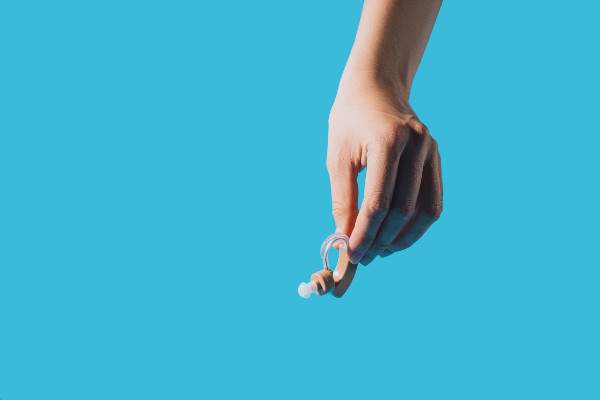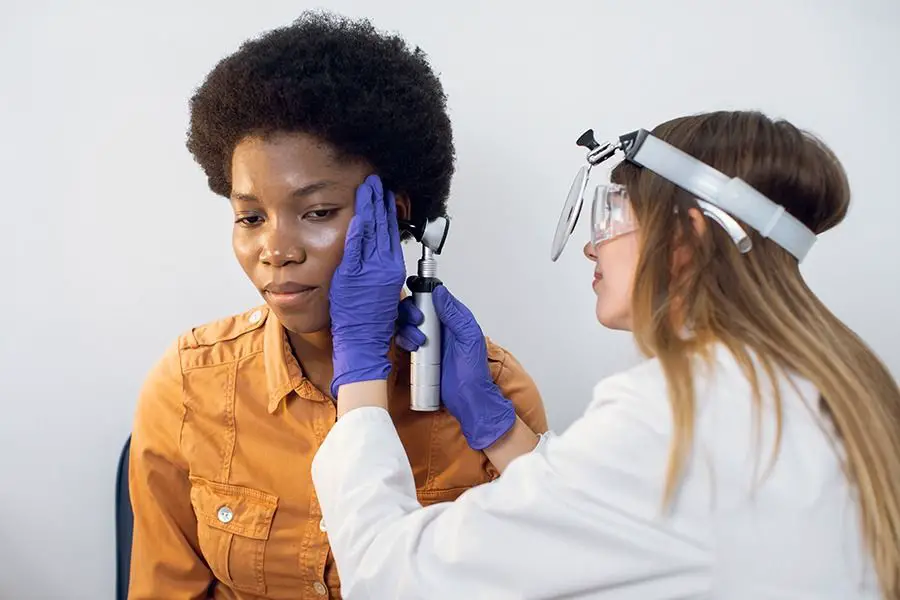Introduction
Meningitis is a serious and sometimes life-threatening infection that can have long-lasting effects on those who survive it. One such effect is hearing loss, which can significantly impact a person’s quality of life. The Proactive Advocate, this educational and inspirational guide will delve into the complex relationship between meningitis and hearing loss, offering valuable insights and advice for those affected by this condition. By understanding the link between these two health issues, you will be better equipped to navigate the challenges and triumphs that lie ahead on your journey to better hearing and overall well-being
The Science Behind Meningitis-Induced Hearing Loss
Meningitis and hearing loss share a complex connection that researchers are still working to fully understand. This inflammation of the protective membranes surrounding the brain and spinal cord can be caused by various factors, such as bacteria, viruses, and fungi. When the infection spreads to the inner ear, it can damage the delicate hair cells responsible for transmitting sound signals to the brain, resulting in hearing loss.
Although meningitis-induced hearing loss can occur in both adults and children, infants are particularly vulnerable due to their developing immune systems. Early detection and prompt treatment are crucial to minimizing the risk of permanent hearing loss, making awareness and understanding of this connection vital for both healthcare professionals and the general public.
Meningitis and Hearing Loss:
Prevention, Diagnosis, and Treatment Strategies Preventing meningitis and its associated hearing loss begins with vaccination. Several vaccines are available to protect against various strains of meningitis, including those caused by bacteria, viruses, and fungi. Consult with your healthcare provider to determine the appropriate vaccination schedule for you and your family members.
Diagnosing meningitis-related hearing loss requires a comprehensive evaluation by an audiologist, who will use a series of tests to assess your hearing abilities. These tests may include pure-tone audiometry, speech audiometry, and tympanometry, among others. Once a diagnosis is confirmed, your healthcare team will work with you to develop a personalized treatment plan. This may involve the use of hearing aids or cochlear implants, speech therapy, and various support services designed to help you adapt to life with hearing loss.
OTC Hearing Aid Pair
Experience the world like never before with the RCA OTC Behind-the-Ear Hearing Aid. Our advanced digital technology ensures that every sound is crystal clear and vibrant, allowing you to fully immerse yourself in life’s experiences. Whether it’s the laughter of loved ones or the music that moves you, our hearing aid brings back the joy of every moment.
Say goodbye to the hassle of appointments and prescriptions. The RCA OTC Hearing Aid is designed to meet the needs of individuals without the need for a prescription. With its seamless setup and user-friendly design, you can effortlessly enhance your hearing abilities and stay connected to the world around you. Simply unpack, wear, and enjoy improved auditory perception instantly.
Experience optimal comfort and style with our discreet behind-the-ear design. The thin tube design allows you to wear glasses comfortably, so you can enjoy clear hearing while maintaining your personal sense of style. Plus, our rechargeable battery ensures long-lasting power, eliminating the inconvenience of constantly replacing small batteries. Elevate your hearing experience with the RCA OTC Hearing Aid and embrace the world with confidence.
Coping with Hearing Loss After Meningitis:
Tips and Strategies Living with hearing loss after meningitis can be challenging, but adopting effective coping strategies can significantly improve your quality of life. One such strategy is to become an active participant in your hearing healthcare by educating yourself about your condition, seeking out the latest treatment options, and advocating for your needs.
Another crucial coping strategy is to maintain strong connections with others. Building relationships with friends, family, and support groups can provide you with valuable emotional support and practical advice. Sharing your experiences and learning from others who have faced similar challenges can help alleviate feelings of isolation and foster a sense of empowerment.
CBD for Tinnitus: Can It Stop the Ringing?
The Invisible Struggle:
Living with Meningitis-Related Hearing Loss The challenges of living with meningitis-related hearing loss can often feel invisible to those around you. While friends and family may be aware of your meningitis diagnosis, they may not fully understand the impact that hearing loss has on your daily life. It’s essential to communicate your needs and challenges to your support network, educating them about the specific difficulties you face.
By openly discussing your hearing loss and the accommodations you require, you can help create a more inclusive environment that supports your needs. Additionally, connecting with others who have experienced meningitis-related hearing loss can provide valuable insights and encouragement, reminding you that you are not alone in your journey.
The Meningitis and Hearing Loss Connection:
An In-Depth Analysis Understanding the link between meningitis and hearing loss is crucial for both healthcare professionals and those affected
by the condition. The infection can lead to inflammation in the inner ear, which may damage the delicate hair cells responsible for transmitting sound signals to the brain. This damage can result in varying degrees of hearing loss, from mild to profound. Additionally, meningitis-induced hearing loss can be temporary or permanent, depending on the severity of the infection and the effectiveness of the treatment.
Research is ongoing to develop new therapies and interventions that can help prevent or reverse meningitis-related hearing loss. These advancements hold great promise for improving the lives of those affected by this condition, offering hope for a future with better hearing and overall well-being.
Meningitis and Hearing Loss:
The Importance of Early Detection Early detection of meningitis and its associated hearing loss is critical for minimizing the risk of long-term complications. If you suspect that you or a loved one may have meningitis, seek medical attention immediately. Symptoms can include fever, headache, stiff neck, vomiting, and sensitivity to light. In infants, symptoms may present as irritability, lethargy, and a bulging fontanelle (the soft spot on the head).
Once meningitis is diagnosed and treated, it’s essential to monitor your hearing for any changes or abnormalities. Schedule regular check-ups with an audiologist to assess your hearing and detect any potential hearing loss as early as possible. Early intervention can improve the chances of preserving your hearing and prevent further complications.
The Journey to Better Hearing After Meningitis
The road to better hearing after meningitis can be challenging, but with the right resources and support, it is possible to overcome these obstacles. Treatment options for meningitis-related hearing loss may include hearing aids or cochlear implants, depending on the severity of your hearing loss. These devices can significantly improve your ability to communicate and interact with the world around you.
In addition to medical interventions, rehabilitation services such as speech therapy, auditory training, and counseling can play a crucial role in your journey to better hearing. By working with a team of dedicated professionals, you can develop the skills and strategies necessary to thrive in a hearing world.
Conclusion:
Meningitis and hearing loss are complexly intertwined, but with awareness, early detection, and proper treatment, the challenges that arise from this connection can be managed effectively. By taking the time to educate yourself about the link between these two health issues and seeking out the best possible care, you can take control of your hearing health and improve your overall quality of life. Remember, you are not alone in this journey – lean on the support of friends, family, and fellow meningitis survivors as you navigate the road to better hearing and well-being.









